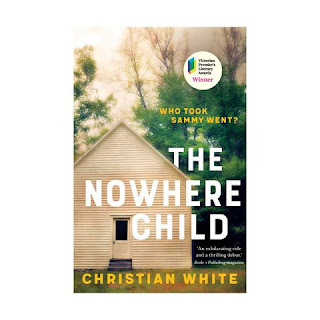Book review: Zoo by James Patterson and Michael Ledwidge
"All over the world, brutal attacks are crippling entire cities."
I began reading action novel Zoo within a few hours of reading Sweet Tooth and after a few pages was wondering if I could go on.
After the tight, intense characterisation of Ian McEwan's new novel I was feeling unconvinced by the almost clumsy attempts to build the central character of Zoo, Oz.
I've had this experience before. A few years ago after being captivated by the prose of Hilary Mantel in Wolf Hall I picked up Ted Dekker's Emmanuel's Veins. To be honest (sorry Ted) I couldn't read past the first few pages.
Here I go again, I thought, and this time it involves one of the world's top-selling and most prolific authors, although admittedly, I was a Patterson virgin. But I lay back and thought of the readers of Cread (Creaders?) and turned another page.
After a few more pages I began to accept the kind of NCIS approach to characterisation - American individualistic, swashbuckler, non-conformist patriot - and could see that it was intentional, if problematic.
But the book really began to find its strength when the action began. When Oz accepts an invitation to Africa to witness the behaviour of lions that might provide evidence of his long held but despised theory about a widespread change in the animal world, the book comes alive.
The publisher's claim that "the pages turn themselves" in a Patterson novel became true as I forgot the world around me and joined Oz in a life and death battle on the plains of Africa.
When the story moved back into the quieter moments of building the identity of Oz and his new love Chloe, all I can say is that it always felt a little underdone, or perhaps like someone was trying too hard. The action scenes though are seamless and compelling - and there are enough of them to keep the novel engaging.
Zoo is actually an environmental novel. Animals have begun to attack humans in increasingly frequent and bizarre ways, as if the very fundamentals of animal behaviour are being changed.
Oz is convinced that it is not just isolated incidents of male lions hunting in packs and carrying away their human kill (unheard of) or loved, family dogs suddenly tearing the intestines out of their owners.
He discovers, with the help of an odd assortment of scientists and despite the stupid self-seeking behaviour of the establishment, that human impact on the environment in two very specific ways has combined to alter the delicate relationship between humanity and the animal world.
It is going to take united, immediate and drastic change by humanity to avoid imminent destruction of our way of life but can Oz, a kind of good ol' boy from middle America with a PhD brain, convince everyone to do what's needed?
I don't know where Patterson stands on global warming - I wouldn't have picked him as an advocate - but it felt very much to me that Zoo is an analogy for the debate over human warming of the planet and our inability to make the changes and sacrifices to protect our fragile world.
If that is his intention, to build a way of looking at environmental issues that might gain the sympathy of a broad group of readers who usually feel at odds with the environmental movement, then perhaps he has been successful.
I'm not sure many of Patterson's heartland readers will make the connection (only fools like me will read Zoo looking for deeper meaning) but they may feel more enfranchised in the discussion and find in Oz's manly voice their own for agreeing that humans need to care better for the planet and it starts now.
- Peter Hallett




Comments
Post a Comment